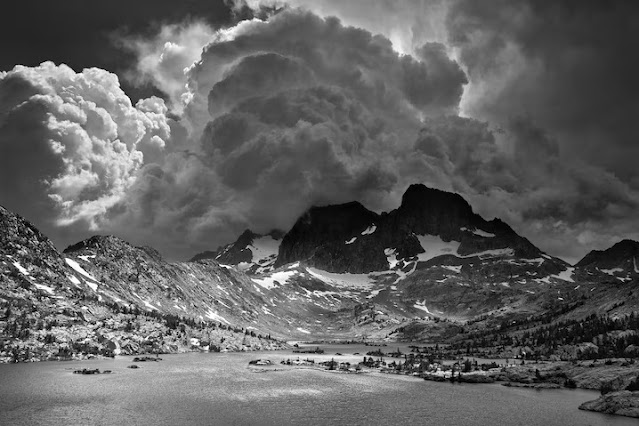Imagine you are walking alone at night on a country road.
No people or cars or houses around, just enough starlight to see your way,
the only sound the sound of your shoes on the road and the swish
of your clothes as you walk. You feel the stillness inside of things come close.
You stop. Now there are no sounds, except the almost-never-heard hush of things being.
You sense the stillness on all sides and an identical stillness within you.
It makes you uneasy, as if you are about to be extinguished.
You try to think, to establish yourself against the stillness,
but the voice of your thoughts sounds thin, metallic.
You feel an irrepressible need to be distracted, to change the stillness
and its overwhelming of you.
You walk home thinking about plans for tomorrow.
But in the quiet of your room you realize what happened: you got scared.
You got scared of opening into the stillness, of allowing it to be.
It was a close call. You see how throughout your life you have invited
one distraction after another to prevent just this from happening.
Now you feel disappointed in yourself. So instead of turning on your computer
or reading a book or getting something to eat,
you sit down and invite the stillness back.
A phrase you once heard comes to you,
from Psalm 46: "Be still, and know." Be still. Be still.
You arrange your body as you have learned to do. You sit in a comfortable,
alert position, with your back vertical so you don't slump or drift off.
You let your body be motionless, quiet. The motionlessness of your body
is a helpful friend; you know it is temporary, and in fact it is
not really motionless - little shifts and sensations keep happening -
but the relative stillness of your body reduces your identification with it,
with the sense you are your body's ambitions and memories and likes and dislikes.
Learning to sit still, to settle like this, is called by Tibetan lamas "the first motionlessness."
A quiet body at ease relaxes the persistence of thoughts. Once the first motionlessness
has been learned, they say, then it doesn't matter if the body is motionless or moving,
for the the ground of stillness is always available. But for now you need this helpful friend,
and you sit still.
Now you invite what the lamas call "the second motionlessness."
This is the still, empty openness "behind" each of your senses,
the openness in which your senses arise. You relax into that openness.
To say it is not moving points to its nature, but that's not entirely accurate.
It is not the opposite of motion, or of the visible, or of sound.
This motionlessness is not definable - it is not a sensation.
Nevertheless it has an almost kinesthetic effect on you,
as if it is vanishing you, as if the existing one you thought you were,
the receiver, the photographic plate that records your experience, this"one,"
becomes transparent. You begin to feel the same threat of vanishing
you felt on the road, but now you relax and let it be.
"The third motionlessness" comes now, unbidden.
It is the stillness of presence itself - the stillness of a clearness that is always here,
behind and within everything. It is what allows everything to show up.
It is empty too not made out of anything, yet it is awesome and radiant in its presence.
It is without being an it.
You remember now how the phrase from Psalm 46 continues:
"Be still, and know I am God."
"God" - this old, strange word that sounds like a judge and yet still resonates beyond that -
could it mean - could it have first meant - this empty Presence without form,
appearing as all form? You realize you are trying to figure it out and you stop.
Be still, and know I am God. The knowing is not thinking.
It is presence being present to presence.
You find yourself wavering here - one moment at ease in the clarity,
and in the next thinking about it. You hear the words again:
Be still. Do nothing. Let be. Don't fill anything in.
No need to figure anything out. Relax.
A sense of peacefulness opens in you, vast and without dimension.
This what Sufis call sakina - vast, peaceful tranquility without dimension -
and suddenly you are smiling, your eyes are filling with tears - a joy -
could it be called that? - a joyousness like praise and thankfulness together,
love pouring forth from nowhere, the whole show showing up -
mountain, sky, stars, bodies - from nothing, from stillness.
In remembering the Real, all hearts find joyous peace.
- Qur'an 13:28
~ Pir Elias Amidon
from Free Medicine
photo by Kathy Chow




























